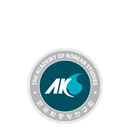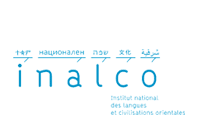Dr. YOON Injin (Asiatic Research Institute, Korea University) présente le séminaire de l’EFEO Paris le 17 octobre 2016 sur le thème « International migration, migrant integration, and multiculturalism in South Korea » de 11h à 12h30 à la Maison de l’Asie (22, avenue du Président Wilson, 75116 Paris, salon du 1er étage).
While multiculturalism lost popular support in Europe, it gained public interest and policy attention in Northeast Asia, particularly in South Korea since the 1990s. The rapid increase of immigrants and the urgent need for accommodating new members of society and helping them integrate into mainstream society were the main reasons for the sudden interest in multiculturalism. The Korean approach to multiculturalism has several distinctive characteristics. First, the Korean government’s policies and programs regarding immigrants are oriented toward migrant integration rather than multiculturalism. Their main goal is to assist immigrants to adapt to Korean society with little attention to their cultural rights. Second, the main targets or beneficiaries of the government’s migrant integration policy are people in international marriages and their children. Migrant workers, who account for a larger share of immigrants in Korea, are not considered a major clientele of migrant integration programs. Ethnic Chinese, who have lived in Korean soil for many generations, are not even considered as a relevant target group that the government needs to take care of. Third, most migrant integration policies and programs aim at assimilating immigrants to Korean culture and society rather than accepting cultures and identities of immigrant groups. Fourth, the Korean people and society as a whole are pretty sympathetic toward immigrants, especially toward female marriage migrants and their children. Because of the general public’s positive and benevolent attitudes toward immigrants, the Korean government allocated a generous budget for migrant integration programs. Finally, the Korean government has dealt with specific multicultural minority groups by legislating specific laws and policies for each group. This group-specific approach toward migrant integration has not only created fissures among migrants, but has also antagonism and conflict among migrants and locals. It will be difficult to obtain the consent of ordinary citizens and to continue operating special group-specific policies. Thus, the government policy should become more universal in its principle and application and try to strengthen the overall national capacity to protect all people at risks rather than targeting specific groups of people.
Séminaire EFEO : YOON Injin « International migration, migrant integration, and multiculturalism in South Korea », 17 octobre 2016
Séminaire EFEO : YOON Injin « International migration, migrant integration, and multiculturalism in South Korea », 17 octobre 2016
URL permanente: http://parisconsortium.hypotheses.org/8266






